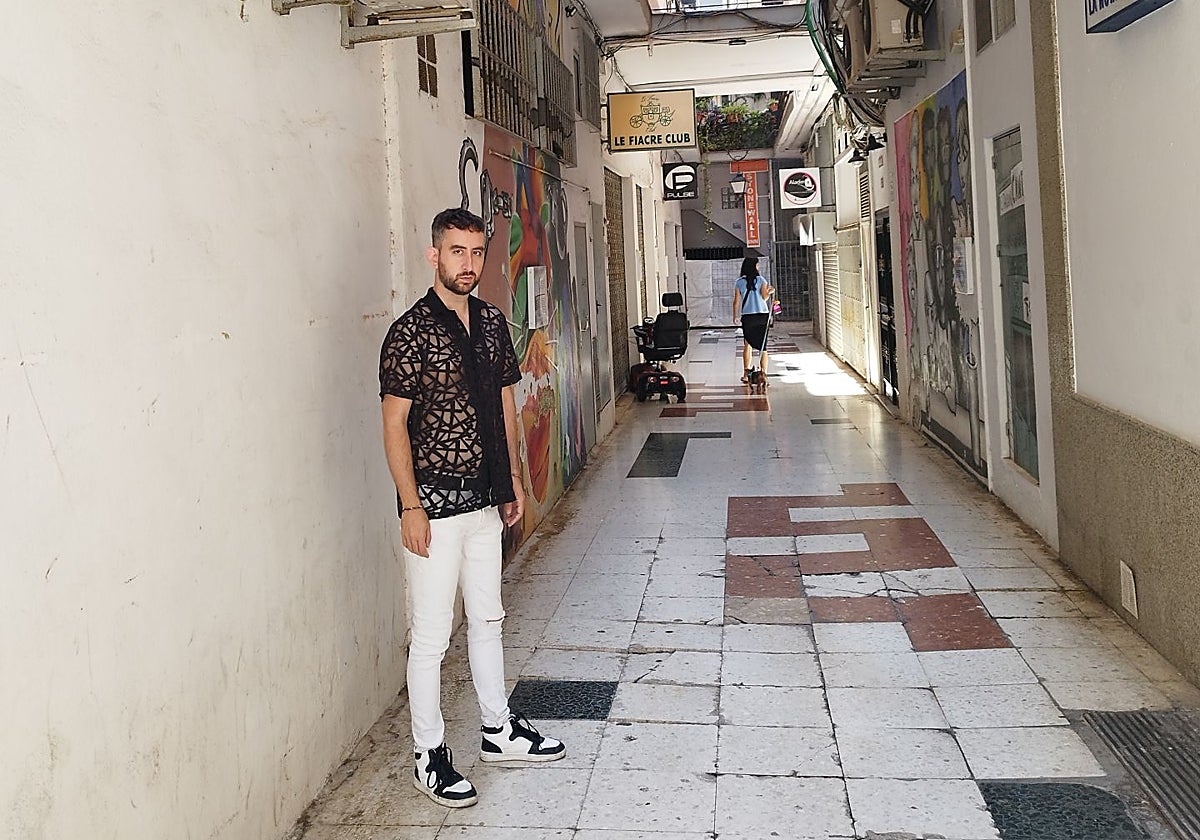From the Costa del Sol to the rest of Europe: this is the new documentary made in Malaga about LGBT history
The documentary also focuses on the raid on Pasaje Begona in Torremolinos, as well as other subjects that "must be remembered so as not to forget"
From the LGBT history of Torremolinos to its situation in Europe. From the '60s to the trans law. From drama to comedy. This is Arcoíris en Blanco y Negro (rainbow in black and white), the documentary made in Malaga about the history of the LGBT community.
Directed by Fran Campos, the film will be released soon and features the testimony of icons such as the activist Carla Antonelli, the artistes Xenon Spain and Desirée Vogue, the designers Victorio & Lucchino and SUR journalist Iván Gelibter, among many other personalities who tell their life experiences and analyse the progress of the rights of the community. "We go through Torremolinos, but it is a global story, of everything that concerns the community from the 60s until now: culture, economy, politics...," explained the Malaga director to SUR.
This documentary, which focuses on the LGBT community's struggle for rights, does not use a "victimising tone", but rather expresses the stories with humour despite the "harshness" of some testimonies, such as that of Carla Antonelli and Desirée Vogue, two transsexual activists. "They have had very hard childhoods for the simple fact of being who they are. They told me that they were not born activists, but that they had to be activists when they saw themselves as outsiders," said Campos, who hopes that those who see the film will empathise, become educated and even have fun with some of the moments of the film.
"Non-acceptance" from family
Campos, as a member of the LGBT community, has also experienced "fear" as a child. He faced "non-acceptance" from his family and surroundings. However, during the process of making this documentary he has been "surprised" by the strength and capacity for forgiveness of people who have suffered "for being themselves". "That capacity is what brings out the humour," says the filmmaker. Something that can be seen in testimonies such as that of Victorio & Lucchino. "They have the ability to stand out against the darkness and to face these situations with humour," he explained.
With these testimonies, he has tried to represent different generations, as well as different circumstances. "In the documentary we see how there are people who have had to live on the street and who have suffered rejection, and younger people who have lived in a different way because they have found support within their families," he said.
Despite the unique stories of the people who appear, there are others, like Sandra Almodóvar, who do not appear in the documentary. "I was talking to her, but she passed away," he said. The drag performer Afrodiziack, who died last year, does appear in the documentary. "She was not only a great artist, she was also my friend," says Campos, who recalls her generosity and experience. "She let us film at her bar - Tiki Tiki Show Copas - and taught us about the world of drag," he added. A world that is also reflected in the film. "We are not aware of the art and the effort behind it," he said.
The documentary also focuses on the raid on Pasaje Begona in Torremolinos, as well as other subjects that "must be remembered so as not to forget". Some of them are the laws that existed in Spain during the Franco dictatorship, such as the Ley de Vagos y Maleantes (vagrants and criminals' law), which gave way to the Ley de Peligrosidad Social (social danger law). "Let's remember that until the 1980s we were practically outlawed. The social danger law penalised people for the simple fact of being themselves, for the simple fact of existing: they were a flaw in the system," said Campos. These laws meant that many people ended up in prison. "Torremolinos was a very important enclave where Franco's dictatorship turned a blind eye to the gay community because many influential people came here", says the director.
The documentary team also travelled to Poland to get to know the reality of the LGBT community in this country. "There are places that have signs announcing that the area is an LGBT-free zone, like a plague-free zone," Campos said. A situation that he believes has come about, among other things, because of hate propaganda. "When you give power to these discourses, you lose rights," he says. In addition, the perception of the LGBT community in Europe, how it has evolved and how these discourses affect the rest of the continent are also highlighted in the documentary.
On the other hand, the name of the documentary comes from the importance of the rainbow flag. "They are colours that in times like Franco's were black and white," he said, adding that places like Pasaje Begoña were "an enclave of colour and light in a totally black and white era that was totally deprived of freedom".

